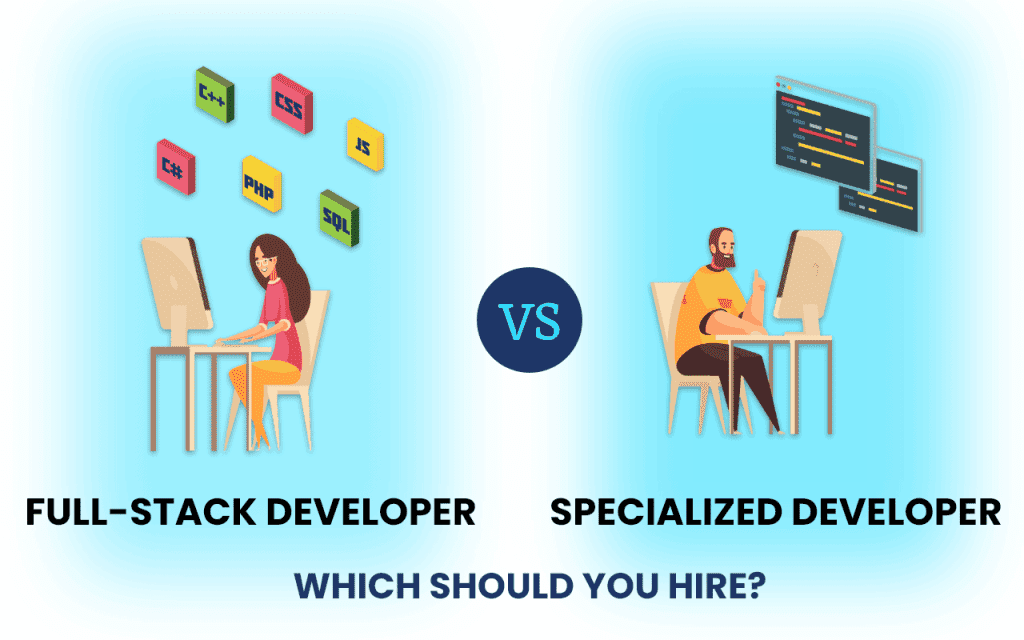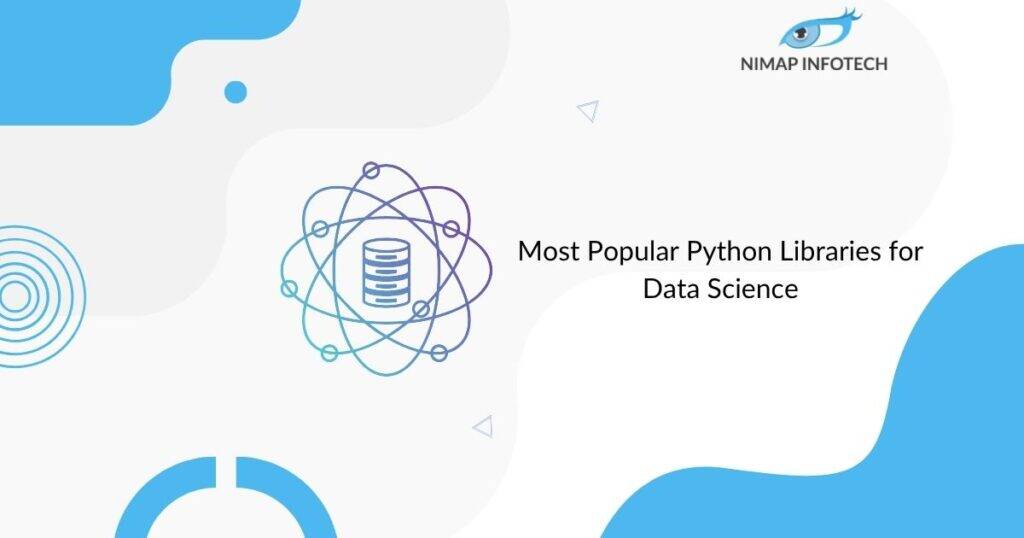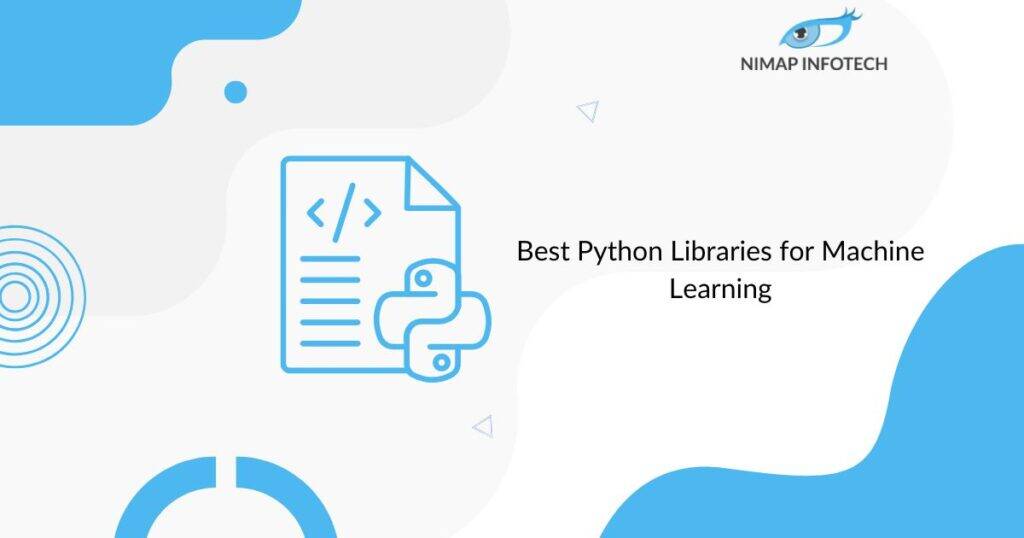Overview
Jack of all!
That saying appears to check out when you begin maintaining a business and searching for individuals who can deal with more than one undertaking. Experts fiddled with various abilities appear to be dependable.
They’re multitalented and can be given something to do in shifted fields. Absence of labor? High upward costs? Gracious, it’s totally arranged, correct?
All things considered, not consistently.
For all intents and purposes with different businesses, Information Technology, as well, is vulnerable to such thoughts. Looking for multitalented cerebrums, I’ve searched for the perfect individuals for not-really right work jobs. I’ve no need to relive that. Furthermore, that is definitively the motivation behind why I can see you, it’s not dependably a ‘p suggests q’ suggestion.
Recruiting designers is one such example when I needed to continually battle my still, small voice. I battled between the decisions of recruiting specific and full-stack engineers and quite often arrive at resolutions that weren’t the most ideal for my business. Result? The work in the end endured and objectives remained neglected.
Assembling all of my experience, here is what I propose – recruit individuals as indicated by the need of great importance. How? Before we dive further, how about we discover who’s a full-stack engineer and who’s a specific designer.
FullStack Vs Specialized
Have you ever wondered which developer will fit my budget and my needs? When you plan to develop a project and hire members for the project. It is essential to know all the expertise levels of team members. With the rising demands of software developers. The range of technologies that are developed for the IT industry. It is quite obvious that newer technologies and expertise are emerging day by day. Firstly, it is quite essential to know the type of developers that you are going to hire for the project. Secondly, you should also know which developers you hire will fit the bill easily and aid your project development.
As talked about earlier, with the spurge in IT technologies, there has been a wide range of developers that are able to do the tasks of development. Mainly there have been two different kinds of developers, a Specialised developer, and a Full Stack developer.
In this article, we will talk about the similarities and differences between a specialized developer and a full stack developer(Full Stack vs Specialized Developer). We will also discuss the pro and cons of these types of developers.
What is a Specialized developer?
A Specialised developer is a person who is an expert in one particular field and has the knowledge of the development process to be undertaken. The work of a specialized developer revolves around the thorough knowledge and domain of a single discipline or field. They are complete experts when it comes to using technology tools and frameworks of that field. Say for example if you would consider mobile app development using Flutter, then Flutter would be the area where this particular person’s expertise lies. Specialized developers have extreme knowledge and know-how about this field, but when it comes to other areas such as database design or back end work, or entity framework design then they have little to no knowledge about this area of the field.
Specialized developers are well known for being professionals in a particular domain or tech area. They will be doing the work that involves the development of software revolving around that technology only.
What is a Full Stack Developer?
A Full Stack developer is the jack of all trades in the IT industry. They are well known to have some amount of knowledge as well as thorough knowledge about a particular technology or domain. They will never have exhaustive expertise for a particular domain as their work revolves around all the aspects of development and creation. A Full Stack developer will easily fit into any of the technology stacks be it Front end design, database design, or back-end design and development. A Full Stack developer is the “ALLROUNDER” of the IT industry. This is because they are able to fit into any discipline. Full-stack developers are generally hard to find as they possess the expertise of the entire development domain. Of Course, this depends on how much knowledge the developer possesses.
Let us discuss the Pros and Cons of each of these developer types:
Pros of Full Stack Developers
Can fit anywhere in the domain: As full-stack developers know adequate knowledge about the domain or software development stack, they are able to fit anywhere. There is no particular role that is exclusive to full-stack developers.
Cost: Full-stack developers are generally cheaper to hire compared to Specialised developers.
Cons of Full Stack Developers
Risk prone management of time: If in a project there are several full-stack developers, then it can pose a huge risk of irrational time management. This is because they might be spending time resolving incomplete tasks. This also increases the dependency of team members on projects.
Lack of Expertise: As full-stack developers work in a wide range of fields in the area of software or app development, there is little time for them to keep updated with the latest happenings.
Skill Set of a Specialized Developer
Particular engineers are specialists in a particular region. They may have acquired inside and out information and investigating capacities from long stretches of involvement.
They are your go-to assets for a particular region, from plan and data sets to engineering. Particular designers can make solid groups and can finish the work on schedule, impeccably.
Pros of Specialized Developer
Thorough knowledge: As specialized developers have worked in one particular domain or discipline, they have exhaustive knowledge about the same.
Convenient assignment of responsibilities: As the work is split up into different tasks and roles, it becomes convenient to assign roles and responsibilities when it comes to working.
Great Work
Since the particular designers are specialists in their innovation, you can anticipate quality work from them. Their result is by and large better analyzed than the one from full-stack designers.
Skill in Latest Trends and Technologies
Since particular designers are centered around a specific region, they keep themselves refreshed with the most recent patterns and innovations, which thus further develops the general item quality.
Simple Allocation
With particular designers, the allotment of work and obligations is simple. The work can be separated into assignments and apportioned to the specific engineers.
Simple to Hire
Recruiting devoted designers is simpler contrasted with employing full-stack engineers. With a wide scope of ability pool accessible on the lookout, the organization can examine and decide the best asset for the organization.
Cons of Specialized Developer
Dependency on team members:
Specialized developers are dependent on their team members as they approach a linear fashion of work.
High Investment
When Particularly contrasted with a full-stack engineer, having explicit designers for different regions costs higher. Moreover, taking into account that a full-stack designer can supplant at least two specific engineers, the general speculation is higher for the organization.
Reliance
In a task, a particular designer has a more prominent reliance on the other one. Sometimes, a designer can’t proceed with his assignment except if the other one has finished.
Coordination
Coordination must be guaranteed between different groups associated with the undertaking. Therefore, understanding the other group is significant. To work with coordination, gatherings and conversations might need to be planned.
Also Read: How to Hire a Web Application Developer
Nimap Hiring Model
-
Screening:
The first and foremost thing done by us is to give you a profile list of all the developers that can add value to your business projects. We select developers by screening them for their expertise and know-how. We take exhaustive tests that provide us an idea about the know-how of candidates and their expertise. After proper screening is done, we put them on the bench to allocate projects as and when the need occurs.
-
Assignment:
As and when the customer requirements come forward to us, we assign our highly skilled developers to depend on the requirements. We take requirements for all projects and assign them as well as start work on them. You can choose from a wide range of developers that you want your project to be handled from. Every project gets a project manager who will overlook the project progress and give you timely updates on the project development progress.
-
Development:
Development initiated for your project and timely updates keep you informed.
-
Demo:
After the completion of the project, we provide you with a working demonstration of your project to you.
-
Handover and Training:
We provide you the entire handover according to NDA requirements from your side, as well as train your existing people on how you should go about using your new project.
Read More: Advantages of hiring remote developers in corona pandemic
Conclusion
So you see the similarities and differences in Full-Stack vs Specialized Developer. Each developer has their own advantages and disadvantages, it all depends on your preferences and needs. If you are looking to hire developers, contact us at enquiry@nimapinfotech.com with your requirements.
Author
-

A technology enthusiast with over 14+ years of hands-on experience in the IT industry, I specialize in developing SaaS applications using Microsoft Technologies and the PEAN stack. I lead a team of 300+ engineers, holding multiple Microsoft certifications (MCSD, MCTS, MCPS, MCPD). My expertise spans across C#, ASP.NET, NodeJS, SQL Server, and Postgres.
View all posts









